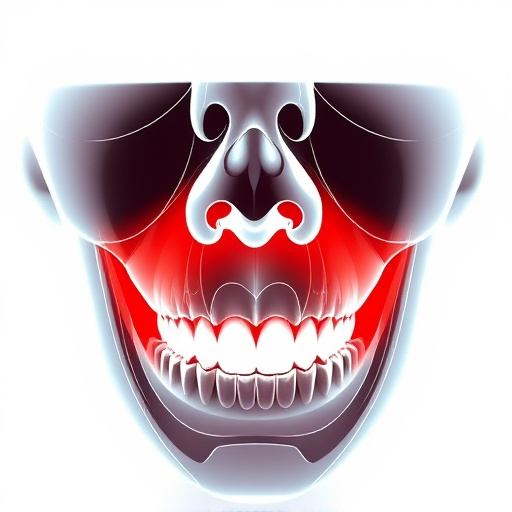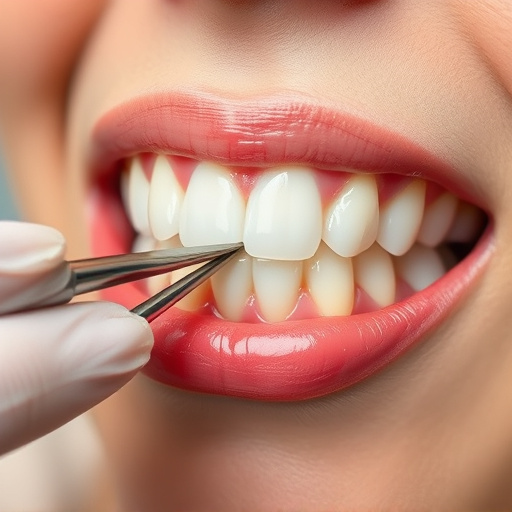Dental sealants for teeth are a preventive measure that seals crevices on back teeth to block bacteria and food buildup, reducing plaque and cavity risk. Effective for children and adults, they decrease dentist visit frequency and costly treatments, promoting optimal oral hygiene with minimal effort.
Dental sealants for teeth are an effective, preventive measure that can significantly reduce the frequency of dental visits. By acting as a protective barrier, these sealants safeguard tooth surfaces from common issues like decay and cracks. This article delves into the science behind dental sealants, exploring how they prevent dental problems and highlighting their long-term benefits in minimizing costly and time-consuming visits to the dentist.
- Understanding Dental Sealants: A Protective Barrier
- How Sealants Prevent Common Dental Issues
- Reduced Visits: Long-Term Benefits of Sealants
Understanding Dental Sealants: A Protective Barrier

Dental sealants for teeth are a preventive measure designed to protect against tooth decay and cavities. They act as a physical barrier on the chewing surfaces of back teeth, where plaque buildup is common. This clear or white coating is applied to the tooth’s surface and hardens, sealing out bacteria and food particles that can cause damage. By creating this protective layer, dental sealants significantly reduce the risk of developing new cavities or worsening existing ones.
This simple yet effective technique is often recommended for children as their primary teeth start to come in, but it’s not limited to kids alone. Many adults also benefit from dental sealants as an additional line of defense against dental issues. In combination with regular brushing and flossing, cosmetic dentistry solutions like sealants can greatly decrease the frequency of visits to the dentist, including emergency dental care scenarios, by addressing potential problems before they become painful or costly to treat, such as avoiding the need for dental fillings.
How Sealants Prevent Common Dental Issues

Dental sealants for teeth are a preventive measure that plays a crucial role in minimizing frequent dental visits. These thin, protective coatings are applied to the chewing surfaces of back teeth, where food debris and bacteria tend to accumulate. By sealing off these crevices, sealants create a barrier against plaque build-up, which is the primary cause of tooth decay and gum disease. This simple yet effective method significantly reduces the risk of developing cavities, thereby preventing the need for extensive restorative dentistry procedures like cosmetic fillings later on.
Moreover, dental sealants offer a proactive solution for common dental issues among children and teenagers, such as pit and fissure cavities. By protecting these vulnerable areas, they help maintain oral health and reduce the likelihood of requiring more invasive treatments or frequent dental cleanings under comprehensive dental care protocols. Ultimately, this translates to fewer dental visits and a healthier smile over time.
Reduced Visits: Long-Term Benefits of Sealants

Dental sealants for teeth offer significant long-term benefits that contribute to reduced dental visits. By effectively shielding tooth surfaces from bacteria and food particles, sealants create a protective barrier that minimizes the risk of cavities and other dental issues. This proactive approach not only saves time and money in the long run but also alleviates the need for frequent dental cleanings and more extensive procedures, such as dental bonding or even root canals, which can be costly and time-consuming.
Regular teeth cleaning remains essential, but dental sealants for teeth further strengthen oral health by providing an extra layer of defense against common tooth problems. This means fewer visits to the family dentistry office, lower maintenance costs, and a happier, healthier smile. It’s a game-changer for both children and adults looking to maintain optimal oral hygiene with minimal effort.
Dental sealants for teeth offer a simple yet effective solution for minimizing dental visits. By creating a protective barrier on the chewing surfaces, these sealants prevent common issues like decay and cracks. The long-term benefits include reduced need for fillings, crowns, or extractions, ultimately saving time, money, and stress. Incorporating dental sealants into your routine oral care can lead to a healthier smile and fewer trips to the dentist’s office.














